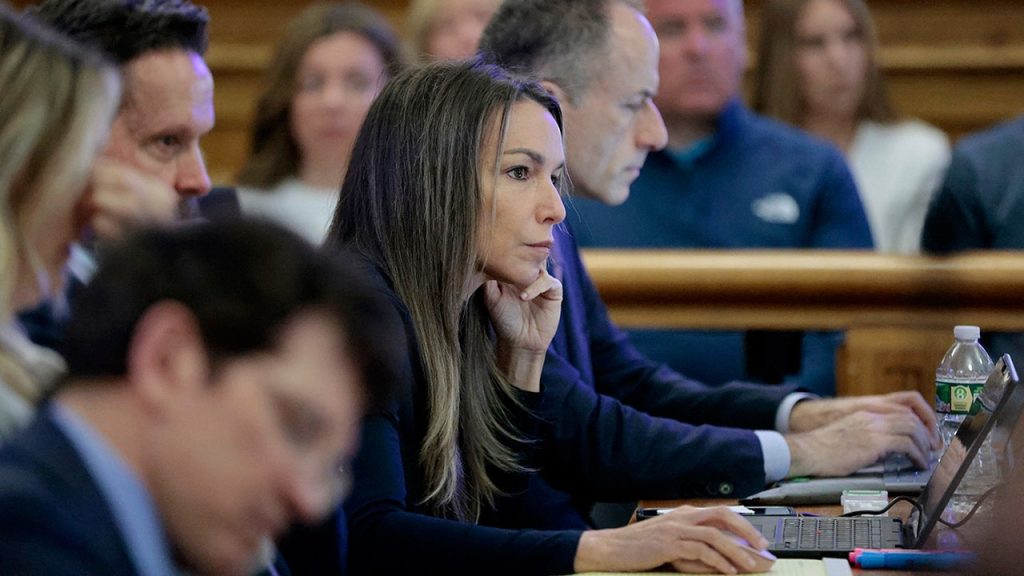The murder retrial of Karen Read has intensified as crucial testimonies unfold in Norfolk County Superior Court. Key evidence was presented by crash reconstruction expert Dr. Daniel Wolfe, who admitted to sharing potentially prejudicial information with Read’s defense team during the first trial. With the prosecution alleging that Read’s SUV struck and killed Boston police officer John O’Keefe in a snowstorm, the courtroom dynamics continue to shift, bringing into question the legitimacy of the retrial’s evidence and the integrity of witness testimonies.
| Article Subheadings |
|---|
| 1) Admission of Misconduct by Expert Witness |
| 2) Delays and Discovery Issues in the Trial |
| 3) Testimony from Digital Forensics Expert |
| 4) Prosecution’s Timeline and Defense Theories |
| 5) Implications of Testimony on the Defense |
Admission of Misconduct by Expert Witness
During the ongoing retrial, Dr. Daniel Wolfe, a crash reconstructionist, disclosed troubling information regarding his conduct in the first trial. In a dramatic turn of events, he admitted to sharing notes with Read’s defense team while also possessing information about previous testimonies, which violated a sequestration order. This admission raises questions about the integrity of expert testimonies considered in both trials.
Specifically, Wolfe accepted that he communicated with Read’s defense regarding key facts, including details about DNA evidence and the positioning of O’Keefe’s body prior to his official testimony. Prosecutor Hank Brennan highlighted this unethical disclosure to assert that Wolfe’s findings may be tainted, thereby compromising the trial’s fairness. The implications of Wolfe’s conduct could significantly impact the jury’s perceptions and the trial’s outcome.
Delays and Discovery Issues in the Trial
The retrial has also been marred by significant delays concerning the disclosure of expert witness findings. Brennan’s team has accused the defense of obstructing the discovery process by delaying requests for expert reports, posing a challenge to the prosecution’s timeline and strategy.
Wolfe stated that his firm, ARCCA, expects to complete its work by May 7, raising alarm bells about timely evidence presentation to the jury. This timeline may push critical findings beyond the jury’s deliberation period. The defense contends that the prosecution’s slower hand on disclosures primarily caused these complications, which could cast doubt on the credibility of witness testimonies and the integrity of the entire process.
Testimony from Digital Forensics Expert
In a critical segment of the trial, digital forensics expert Ian Whiffin took the stand, examining the crucial data retrieved from the phones belonging to both O’Keefe and a significant witness, Jennifer McCabe. Whiffin’s analysis revealed the timeline of O’Keefe’s last movements, underscoring the prosecution’s narrative.
His testimony sought to dismantle theories posited by the defense, which suggested that McCabe had engaged in questionable online searches before the discovery of O’Keefe’s body. Whiffin clarified that a search found on McCabe’s phone was performed significantly later than the defense claimed, aligning instead with the timeline established by the prosecution. Such findings aid in reinforcing the narrative that counters claims made by the defense regarding the circumstances leading to O’Keefe’s tragic demise.
Prosecution’s Timeline and Defense Theories
Focusing deeply on the timeline leading up to and following the incident, the prosecution has assembled a cohesive narrative suggesting that Read was culpable in the officer’s death. They argue that after a night of drinking, Read backed her vehicle into O’Keefe during a heated confrontation and subsequently abandoned him in sub-zero temperatures.
The defense, however, counters these assertions, maintaining that their client’s SUV never made contact with O’Keefe. They point to inconsistencies in witness statements and evidence gathered during the investigation. Such conflicting narratives pose challenges as the jury grapples with the complexity of the case.
Implications of Testimony on the Defense
Each testimony presented in court continues to shape the unfolding narrative surrounding Read’s actions leading up to O’Keefe’s death. The implications of Wolfe’s admittance and Whiffin’s digital forensic analysis complicate the defense’s strategy by introducing doubt and sketching a more detrimental picture of the events as claimed by the prosecution.
As the trial progresses, Read’s defense is poised to address these challenges, likely aiming to discredit the testimonies and introduce alternative explanations to counter the prosecution’s assertions. The next steps in the proceedings will be pivotal in determining whether Read can successfully evade conviction.
| No. | Key Points |
|---|---|
| 1 | Expert witness Dr. Daniel Wolfe admits to sharing information with the defense during the first trial. |
| 2 | Delays in expert findings highlight issues related to discovery and transparency. |
| 3 | Digital testimony undermines defense theories regarding timeline discrepancies. |
| 4 | Prosecution claims Read’s actions were negligent and leading to O’Keefe’s death. |
| 5 | Challenges posed by the defense to counter prosecution narratives in upcoming testimonies. |
Summary
The retrial of Karen Read encompasses intricate layers of testimony and conflicting narratives surrounding the accused’s alleged actions leading to the death of officer John O’Keefe. As the trial progresses, the revelations about the misconduct of expert witnesses and the evolving timelines present substantial implications for both the prosecution and the defense, shaping the anticipated outcome. The courtroom drama continues as both sides prepare for elaborative witness examinations and arguments that could seal Read’s fate.
Frequently Asked Questions
Question: Who is Karen Read?
Karen Read is currently on trial for the alleged murder of Boston police officer John O’Keefe, who was found dead in a snowstorm under circumstances that remain contentious in the courtroom.
Question: What are the main charges against Read?
Karen Read faces charges of murder, with prosecutors alleging that she struck O’Keefe’s body with her SUV following an argument and left him to die in harsh conditions after a night of drinking.
Question: How does expert testimony influence the trial?
Expert testimony plays a crucial role in shaping the jury’s understanding of key evidence and timelines, impacting the credibility of the presented narratives from both the prosecution and the defense.


